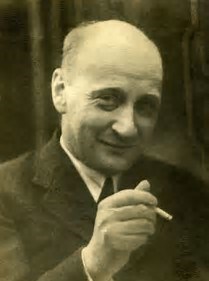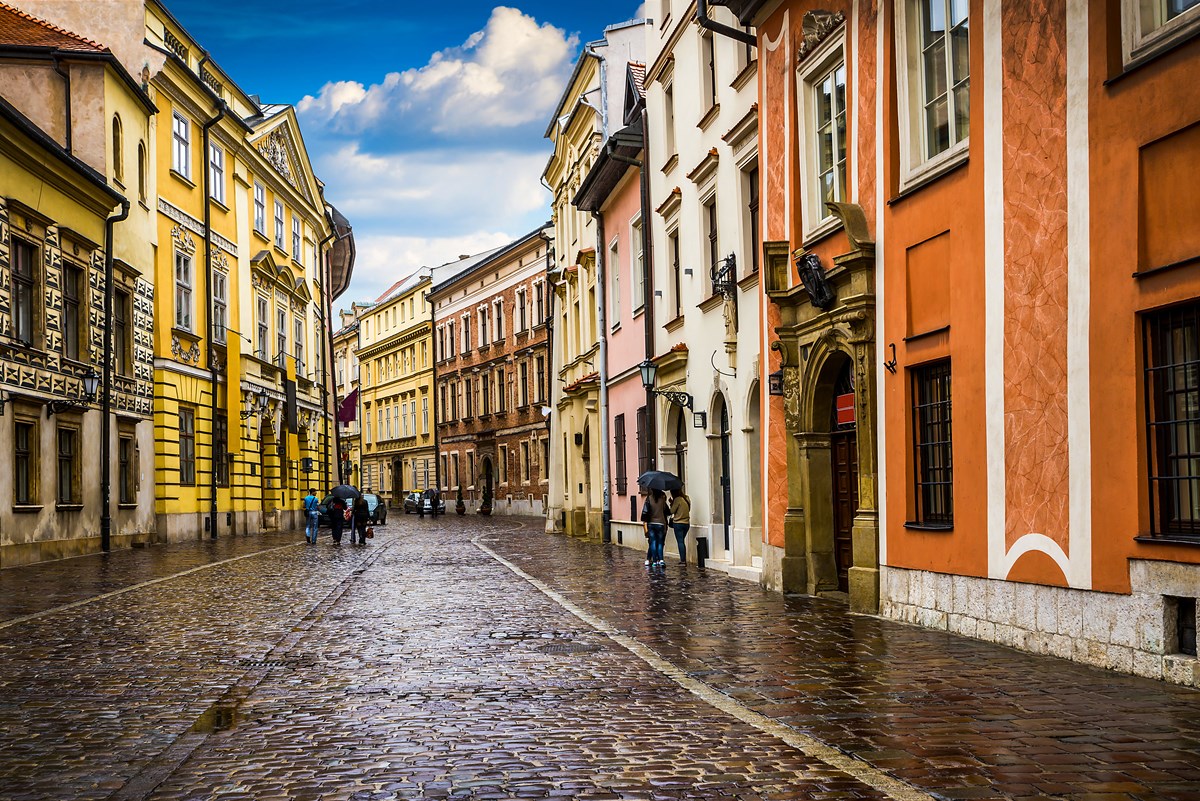Nothing is so contagious as example; and we never do any great good or evil which does not produce its like -- Francois de la Rochefoucauld (1613-1680).
Heroes for liberty are not peculiar to any region of the world or to a particular time period or to one sex. They hail from all nationalities, races, faiths and creeds. They inspire others to a noble and universal cause—that all people should be free to live their lives in peace so long as they do no harm to the equal rights of others. They are passionate not solely for their own liberty, but for that of others as well.
In my last book, Real Heroes: Inspiring True Stories of Courage, Character and Conviction, I wrote about 40 individuals whose views, decisions and actions served this cause in various ways. That book planted the seed for this new weekly series to be published each Thursday at FEE.org. But this time, others from around the world will do the writing, and I’ll be content to do the editing. It is my hope that when all is said and done some months from now, the literature of liberty will be greatly complemented by this collection of short biographies. The authors will be writing about heroes for liberty who are (or were) citizens of each author’s own country. Each week’s installment will be added to the collection here.
The subject of this second essay is economist Adam Heydel and the author is Marcin Chmielowski of the Freedom and Entrepreneurship Foundation in Krakow, Poland.
-Lawrence W. Reed, President, Foundation for Economic Education
Every nation boasts exceptionally brave individuals who, especially when motivated by fighting oppression, became great heroes worthy of praise and examples for others to follow.
It is always good practice to balance this and show a different kind of bravery in history.
European history, my native Poland included, is full of stories of insurgent, scythe-wielding warriors whose bravery inspires. But this has become somewhat of a cliched narrative, sometimes clouded by time, myth and emotion.
It is always good practice to balance this and show a different kind of bravery in history, like that of my subject here, Professor Adam Heydel. He was certainly courageous, but his weapon was his quill and his strength was the strength of mind. He paid the ultimate price for being faithful to the ideals he stood for. Fortunately, his legacy lives on and can be helpful to modern lovers of liberty if we acquaint ourselves with his importance.
The Central European Picture Puzzle
Adam Heydel was born in 1893 in a region of Poland that had been annexed by Russia. In fact, during the whole of the 19th century, Poland did not even exist as a sovereign state. It was divided into three sections by Russia, Prussia, and Austria-Hungary. Though Heydel came from the Russian portion, he sought formal education in Krakow, which was then within the portion governed by Austria-Hungary.
There, he became close to a family relation and prominent painter, Jacek Malczewski, a distinguished artist who left a deep imprint on Heydel’s character that lasted a lifetime. As an economist in the future, he would retreat to art to find inner peace. He credited this exposure to art for helping him understand the relationship between what is rational and what is emotional.
He believed a nation to be a spontaneously shaped community based on the shared cultural identity of its members.
Later in life as a straightforward free market economist guided by rational thinking, Heydel did not forget about his ancestry. He thought of himself as a Polish nationalist, but one who emphasized the importance of democratic institutions and multi-party republicanism. He believed a nation to be a spontaneously shaped community based on the shared cultural identity of its members. That national bond wasn’t always rational, but it was something absolutely natural and pervasive.
After passing his high school exit exam and graduating, Adam Heydel returned home to his family in the Russian-controlled region of historical Poland, but not for long. His father was accused of spying against the tsarist regime and the entire family was deported—not to Siberia, fortunately, but to Moscow, which was sufficient to cut the Heydels off from their friends and local community. It was in Moscow where Adam Heydel began his study of economics. He continued that education in Kiev, Ukraine, where he developed an interest in teaching as a way to influence the fate of Poles and Poland. As the Great War ended, he returned to reborn Poland and began working at Krakow's prestigious Jagiellonian University in 1921.
Heydel was lucky to get under the wing of Professor Adam Krzyżanowski, who considered himself a student and follower of Adam Smith’s ideas. Krzyżanowski believed that only capitalism with its private property and competition components allows for the creation of a properly functioning civil society—and consequently, responsible voters. He had Heydel quickly found common ground.
The spirit of economic thinking in Krakow at the time was rather liberal (in the classical, European sense) and influenced by several factors, including: Krzyżanowski’s own scholarly interests and prominence, the proximity of Vienna and the Austrian school, and the relatively liberal perspective of the late Austria-Hungary environment.
Krakowian liberals like Krzyżanowski and Heydel were perfectly aware of the fact that the course the future would take would be determined by the power of ideas in general and their persuasiveness in particular. Under the changed conditions of a post-war independent Poland, they needed to act quickly, recognizing the gravity of the situation and the risks. They created the Economic Association of Krakow in 1921.
The Association could be called a freedom-oriented advocacy group or think tank. Its aims included “supporting any endeavor determined to improve the productivity of the nation on the basis of free market ideas, nurturing the teachings of entrepreneurship in all its branches, as well as observing the current economic life, the assessment of draft legislation, acts and decrees concerning any field related to social entrepreneurship and spreading the news related to economics in society.” Such a declaration could be readily accepted and signed by any modern libertarian think-tank today.
The Krakow School undertook the challenging task of convincing Polish citizens of the merits of free market ideas.
Krakow School of Economics
With a core of classical liberal scholars within the Association and at Jagiellonian University, the Krakow School of Economics began to emerge. Its most prominent representative was Adam Heydel himself, who soon became a full-time economics professor at the University. The Krakow School undertook the challenging task of convincing Polish citizens of the merits of free market ideas, the beneficial effects of free trade and principled opposition to the government’s interference with the economy.
A big problem was a very weak liberal tradition in Poland. The Krakow liberals struggled to find examples to point to and often had to refer to the USA or UK, which weakened the whole message they were trying to get across. But they worked hard, writing and speaking and teaching as if the future depended on acceptance of liberal ideas, which of course, it did.
During its existence, put to an end by the Nazis in 1939, the Economic Association of Krakow published 105 works of which several remain classic works of Polish free market economics. The members of the Association participated in uncountable debates and lectures. They invited prominent guests from abroad to stimulate thought about what the future of Poland should be like. Slowly and arduously—but systematically—they spread the knowledge of freedom and free markets, even as the world plunged into depression and hurtled toward war.

Meeting Ludwig von Mises
Heydel was not an original economist. His influence and achievements were based on his attempts to implement Austrian economics.
Heydel understood that educating others requires a never-ending mission of educating oneself. In 1928 he went to Vienna in order to get acquainted with its economic tradition. There, he met F. A. Hayek and participated in Ludwig von Mises’s seminars. His time in Vienna started a new chapter in his life, allowing his ideology and methodology to develop. He became committed to the Austrian tradition of conducting economics as a value-free science.
Heydel was not an original economist. His influence and achievements were based on his attempts to implement Austrian economics and Mises’s ideas to the Polish reality of that time. Though that doesn’t appear as a remarkable achievement in the larger sense, from the perspective of the Polish economic tradition it was a praiseworthy endeavor. Those of us who work today to teach and spread Austrian free market economics in Poland believe we owe a great intellectual debt to Adam Heydel and the seeds he planted.
Heydel expressed his ideas in writing mostly through short pieces, commentaries and the like. His scholarly works are not long, but concise and analytical with nary a redundant sentence. His legacy also includes numerous journalistic works with different levels of complexity.
A few characteristic elements were frequently present in his lectures and writings. Most of all, he tried to differentiate between ideology and science. One the one hand, as an ideologue possessing a complex system of principles, he was a staunch free marketeer. On the other hand, as a scientist examining human action, he maintained a value-free approach. At all times, he sought truth for its own sake and kept his eyes open to what experience could teach. For instance, he believed communism to be an obvious ideological and economic failure, writing that “all the swords wielded by the Bolshevik terror broke on the iron bars of economic laws.”
Heydel regarded the mechanism of competition to enable individuals and whole nations to gain wealth—not the ivory tower, the mythical notion of “perfect competition” that was the rage in some circles at the time, but actual, rivalrous behavior in the real marketplace. Real competition involved a process of negotiating prices in the midst of always-incomplete information. The state with its will to regulate private contracts was a nuisance to him. And since active individuals are smart enough to get around the regulations, he regarded their imposition as usually pointless.
A recurrent theme in Heydel’s ideas was the harm of statism, the government’s intervention in the economy. Since the location of Poland and the increase of the power of totalitarian states—Nazi Germany and Soviet Russia—he thought it acceptable for the state to intervene in the branches of economy concerned with defense, though he argued that it should still be as little as possible. Heydel wanted to see the Polish economy as “a free space” with low barriers to entry and allowing for the realization of diversified business. The government would be responsible for guaranteeing order through a legal system.
Unfortunately, the seeds of thought that Adam Heydel and his free market colleagues from the Krakow School were planted in hostile ground. In 1926, Poland experienced a coup and an army-backed government seized power.
The new rulers aimed to invigorate Polish institutions and put an end to corruption, both praiseworthy postulates in the context of the day, but their implementation was downright horrible. The government proved to be openly hostile towards free market capitalism, so it constantly tried to limit and nationalize it. The economy, already oppressed by regulations imposed by former democratic governments, was additionally burdened by new laws.
As government discretion increased and the sphere of civilian life was limited, the chances of developing the country diminished. Elections were rigged. The Krakow School’s educational efforts went underground. The government did not appreciate the School’s critical assessment of its policies and considered Heydel in particular an inconvenience, so in 1933 he lost his post at Jagiellonian University, regaining it in 1937.
The Tragic End
Heydel wanted no part of slavery or stripping individuals of their choices and dignity.
Nonetheless, all that was incomparable to the Hell that was yet to come. On September 1, 1939, Poland was attacked by Hitler’s army. On September 17, the Red Army fulfilled the secret terms of the Molotov-Ribbentrop Pact and stabbed Poland in the back, invading the Eastern parts of the country. Adam Heydel, after being found guilty of plotting against the Nazis—he had joined the underground movement but was found out—was turned over to the German army. He died in March 1941 in the infamous Nazi concentration camp known as Auschwitz.
Before his death, Heydel actually had a chance at release from Auschwitz. His ancestors came to Poland from Thuringia around the end of the 17th century and one of the German officers in the camp recognized the unique surname. He offered Heydel freedom on the condition that he would renounce his Polish background and sign the Volksliste, an official roster of people of German ancestry living outside of Germany. Heydel rejected the offer. In no way did he want to be connected with the totalitarian regime. To him, it was the very negation of freedom. He wanted no part of slavery or stripping individuals of their choices and dignity.
In post-war communist Poland, there was no place for Adam Heydel’s legacy. Poland was basically governed by Moscow and was incorporated to the Eastern Bloc. Heydel’s works were forgotten and his economics textbook for college students was removed from the libraries and destroyed. It was not until the 1980s that Poles started to remember him. The Jagiellonian University staff posthumously awarded him with the Merentibus medal in recognition of “unyielding tenaciousness against the Nazi occupant, defense of the human dignity and of the fatherland, as well as of the independence of science.”
The collected works of Adam Heydel were published in 2012. As a consequence of the decades of systematic suppression of the Polish free market capitalist tradition, Polish citizens are still largely unfamiliar with one of the most important representatives of Polish free market economics.
Ideas Are Bulletproof
Adam Heydel was a martyr of Polish liberalism and the Austrian School of Economics.
At the Freedom and Entrepreneurship Foundation where I serve as vice-president, we want to change this sad fact! We have produced a movie on the Krakow School of Economics, partly focused on Adam Heydel, and titled “The Forgotten: History of the Krakow School of Economics.” I was honored to be the scriptwriter and the director of the production. You can watch the movie here.
Through films like this and many more to come, Polish citizens will know that they have their own freedom-fighting intellectual heroes, those who fought by means of the strength of their minds and cared for education. We believe that it will make it easier for today’s Polish liberty advocates to publicize our own history of heroes and heroic ideas, and dismiss the false impression that freedom ideas might be good, but just for Americans.
Adam Heydel was a martyr of Polish liberalism and the Austrian School of Economics. But after all this time, he can still be victorious. He can continue teaching us. All we have to do is to be smart enough to carefully listen to his advice.
Editorial Note: The Polish Mises Institute has published all of Heydel's collected works and made them available online for free in pdf, epub and mobi formats.

